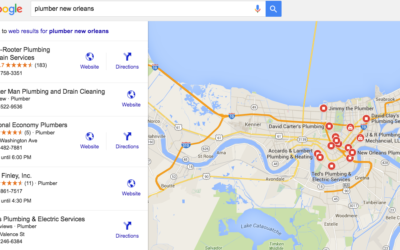PPC advertising can seem daunting at first, but it is necessary to build an online presence for your business. To successfully reach potential new customers online, marketers must understand how to use match types in their digital campaigns.
Utilizing different match types is a great way to control which searches trigger your paid search ad. Match type determines how similar keywords and search terms must be for your ad to appear.
Google offers four main match types:
Broad Match:
-Your ad appears for relevant variations of your keywords including synonyms, singular/plural forms, misspellings, extensions, and related searches, even if these terms aren’t on your keyword lists.
Broad Match Modifier can help narrow the audience your ad reaches. Add a modified to any of the words in a keyword phrase to ensure that your ad will only show if search terms include the modified term or a very close variation. Enter a plus sign in front of a word to make it a modifier. For example, if your keyword is New Orleans +restaurants, a search for new restaurant in New Orleans will trigger your ad, but a search for New Orleans diners will not.
Phrase Match:
–Your ad appears for the same categories as broad match except synonyms and other words in the middle of search terms. For example, if you use phrase match with the keyword “New Orleans restaurants”, the search term New Orleans fancy restaurants will not trigger your ad.
–Utilize phrase match by entering quotation marks around each of your keywords.
Exact Match:
–Search terms must be almost exactly the same as keywords for your ad to appear. Words can be slightly misspelled or vary in singular/plural form.
–Utilize exact match by entering each keyword in brackets. [Keyword]
Negative Match:
-Use this match type to prevent your ad from showing to people who include specific words in their search terms.
-Negative match is especially helpful to prevent unwanted clicks and reduce irrelevant traffic.
-Negative match can be used in conjunction with another match type.
-Enter a minus sign before a word to indicate negative match. For example, if you are trying to raise brand awareness for your restaurant, you might use the keyword New Orleans restaurants –jobs, to filter out some irrelevant searches.
A few other things to keep in mind:
-Many advertisers recommend starting a campaign with broad match to reach the largest audience.
-Keywords are not case sensitive.
-Match types can be used on the search and the display network.





